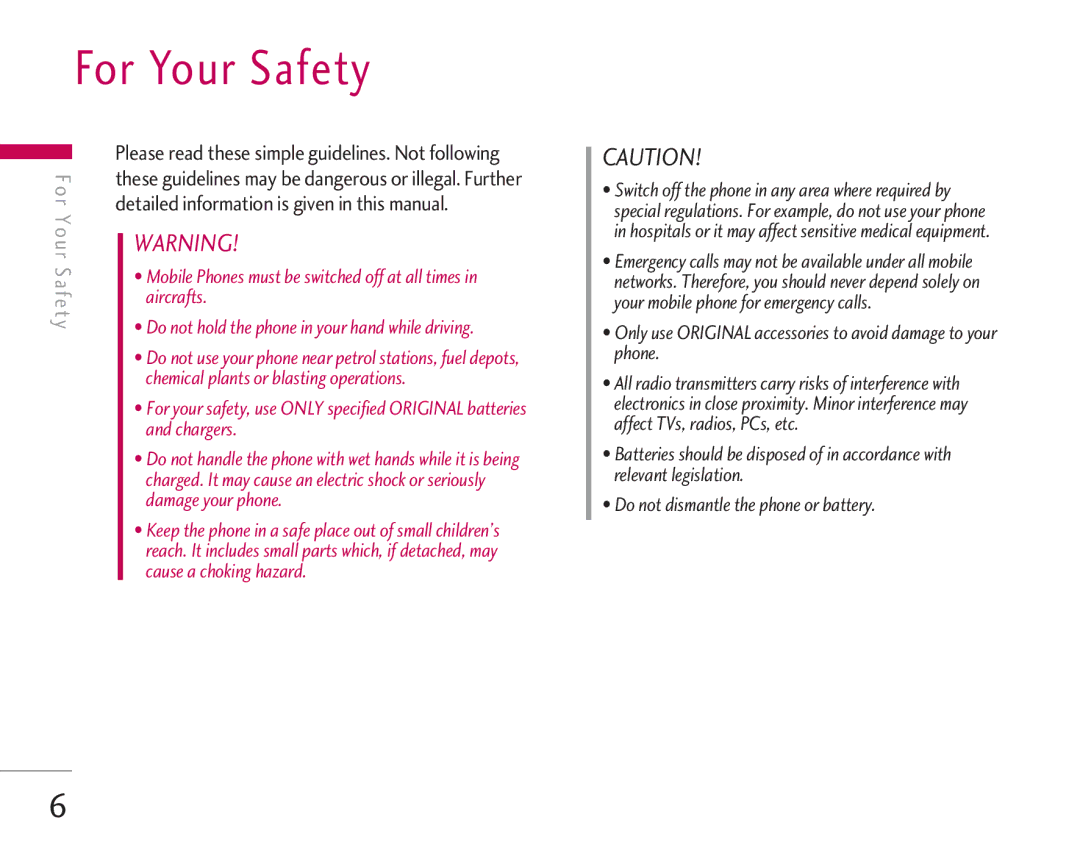For Your Safety
| Please read these simple guidelines. Not following | ||
| |||
F | these guidelines may be dangerous or illegal. Further | ||
o r | detailed information is given in this manual. | ||
Y o u r | |||
| WARNING! | ||
| |||
S |
| • Mobile Phones must be switched off at all times in | |
a fe |
| ||
| aircrafts. | ||
t y |
| • Do not hold the phone in your hand while driving. | |
|
| ||
|
| • Do not use your phone near petrol stations, fuel depots, | |
|
| chemical plants or blasting operations. | |
|
| • For your safety, use ONLY specified ORIGINAL batteries | |
|
| and chargers. | |
|
| • Do not handle the phone with wet hands while it is being | |
|
| charged. It may cause an electric shock or seriously | |
|
| damage your phone. | |
|
| • Keep the phone in a safe place out of small children’s | |
|
| reach. It includes small parts which, if detached, may | |
|
| cause a choking hazard. | |
CAUTION!
•Switch off the phone in any area where required by special regulations. For example, do not use your phone in hospitals or it may affect sensitive medical equipment.
•Emergency calls may not be available under all mobile networks. Therefore, you should never depend solely on your mobile phone for emergency calls.
•Only use ORIGINAL accessories to avoid damage to your phone.
•All radio transmitters carry risks of interference with electronics in close proximity. Minor interference may affect TVs, radios, PCs, etc.
•Batteries should be disposed of in accordance with relevant legislation.
•Do not dismantle the phone or battery.
6
